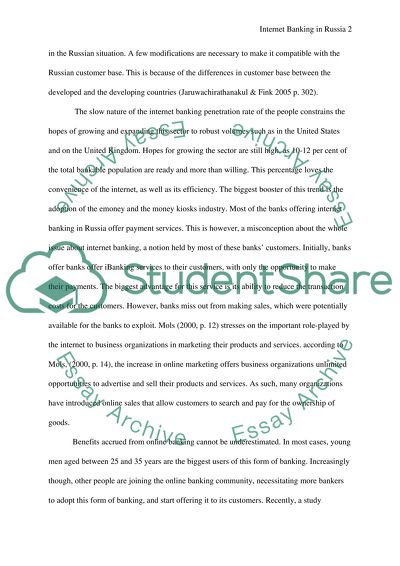Cite this document
(“How does the western model of Internet Banking apply to Russia Literature review”, n.d.)
How does the western model of Internet Banking apply to Russia Literature review. Retrieved from https://studentshare.org/finance-accounting/1484206-how-does-the-western-model-of-internet-banking
How does the western model of Internet Banking apply to Russia Literature review. Retrieved from https://studentshare.org/finance-accounting/1484206-how-does-the-western-model-of-internet-banking
(How Does the Western Model of Internet Banking Apply to Russia Literature Review)
How Does the Western Model of Internet Banking Apply to Russia Literature Review. https://studentshare.org/finance-accounting/1484206-how-does-the-western-model-of-internet-banking.
How Does the Western Model of Internet Banking Apply to Russia Literature Review. https://studentshare.org/finance-accounting/1484206-how-does-the-western-model-of-internet-banking.
“How Does the Western Model of Internet Banking Apply to Russia Literature Review”, n.d. https://studentshare.org/finance-accounting/1484206-how-does-the-western-model-of-internet-banking.


